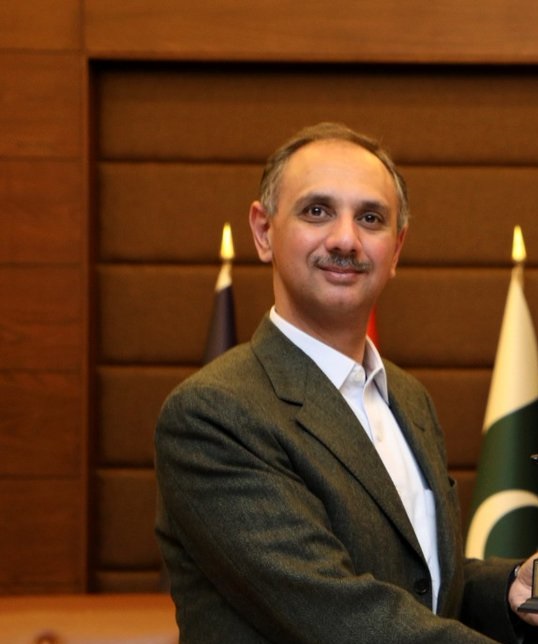By Muhammad Mohsin Iqbal
Since its inception in 1947, Pakistan has seen numerous leaders guiding the nation through various
triumphs, challenges, and transformations. The role of Prime Minister in Pakistan’s political landscape
has been crucial, reflecting the intricate socio-political dynamics and the nation’s journey towards
democracy.
Prime Ministers have played a significant role in shaping Pakistan’s path, from Liaqat Ali Khan, the first
Prime Minister, to contemporary leader Mian Muhammad Shehbaz Sharif. Each leader has left a lasting
impact on Pakistan’s socio-political fabric.
Liaqat Ali Khan, a close aide to Quaid-e-Azam Muhammad Ali Jinnah, became Pakistan’s first Prime
Minister burdened with the responsibilities of a new nation. He faced numerous challenges during his
tenure, including the refugee crisis, the Kashmir dispute, and establishing governance frameworks.
Subsequent Liaqat Ali Khan, a series of Prime Ministers dealt with governance complexities amidst
regional tensions and global changes. However, the Presidency of Ayub Khan marked a significant shift
with the onset of military rule in 1958, altering Pakistan's political trajectory.
Zulfiqar Ali Bhutto's tenure ushered in a new era in Pakistan's politics. His charismatic persona and
socialist policies led to nationalization of industries, agrarian reforms, and the drafting of Pakistan's first
democratic constitution in 1973.
The 1990s witnessed a turbulent period with alternating civilian and military administrations. Mohtarma
Benazir Bhutto's tenure as Pakistan's first female Prime Minister marked a significant milestone. Despite
facing challenges, she advocated for women's rights, democracy, and socioeconomic reforms.
Mian Muhammad Nawaz Sharif known for his strong leadership and determination, played a significant
role in shaping Pakistan's political landscape. His tenure was marked by both achievements and
controversies, including economic reforms and infrastructural development.
In recent years, Pakistan has moved towards democratic governance with leaders like Syed Yousaf Raza
Gillani, Raja Pervaiz Ashraf and Shahid Khaqan Abbasi leading the nation. However, political polarization,
economic challenges, and security issues continue to shape Pakistan's political landscape.
Imran Khan's rise to power in 2018 marked a departure from traditional politics, advocating for anti-
corruption and social equity. Despite facing opposition scrutiny and economic downturns, his tenure has
seen reforms in governance, healthcare, and education.
As Prime Minister, Mian Muhammad Shehbaz Sharif brings experience and development commitment.
Known for his administrative skills and focus on infrastructure, he prioritizes efficiency and progress.
Championing policies for economic growth and social welfare, he aims for inclusive development
benefiting all segments of society.
As Pakistan moves forward, the Prime Minister's role remains crucial in shaping the nation's path. The
country's political history reflects its triumphs, challenges, and the aspirations of its people towards a
better future.
Below is a summary of the votes and dates for each Prime Minister:
· Mr. Liaquat Ali Khan: Appointed Prime Minister on 15—08—1947 till October 16, 1951.
· Khwaja Nazimuddin: Appointed Prime Minister on 17—10—1951 till April 17, 1953.
· Mr. Muhammad Ali Bogra: Appointed Prime Minister on 17—04—1953 till August 11, 1955.
· Chaudhry Mohammad Ali: Appointed Prime Minister on 11—08—1955 till September 12, 1956.
· Mr. Hussain Shaheed Suhrawardy: Appointed Prime Minister on 12—09—1956 till October 18,
1957.
· Mr. Ibrahim Ismail Chundrigar: Appointed Prime Minister on 18—10—1957 till December 16, 1957.
· Malik Feroz Khan Noon: Appointed Prime Minister on 16—12—1957 till October 7, 1958.
· Mr. Nurul Amin: Appointed Prime Minister on 07—12—1971 till December 20, 1971.
· Mr. Zulfikar Ali Bhutto: Elected Prime Minister with 108 votes against Maulana Shah Ahmad
Noorani, who received 28 votes on 14—08—1973 till July 5, 1977.
· Mr. Muhammad Khan Junejo (VoC): Unanimously elected Prime Minister with Vote of Confidence
on 23—03—1985 till May 29, 1988.
· Mohtarma Benazir Bhutto (Voc): Elected Prime Minister with 148 votes in favour whereas 55
against on 2—12—1988 till August 6, 1990.
· Mr. Muhammad Nawaz Sharif: Elected Prime Minister with 153 votes against Khan Afzal Khan, who
received 39 votes on 06—11—1990 till April 18, 1993.
· Mohtarma Benazir Bhutto: Elected Prime Minister with 121 votes against Mr. Muhammad Nawaz
Sharif, who received 72 votes on 19—10—1993 till November 5, 1996.
· Mr. Muhammad Nawaz Sharif: Elected Prime Minister with 177 votes against Mr. Aftab Shaban
Mirani, who received 16 votes on 17—02—1997 till October 12, 1999.
· Mir Zafarullah Khan Jamali: Elected Prime Minister with 172 votes against Maulana Fazlur Rahman,
who received 86 votes and Makhdoom Shah Mehmood with 70 votes on 23—11—2002 till June 26,
2004.
· Chaudhry Shujaat Hussain: Elected Prime Minister on 30—06—2004, with 190 votes against
Makhdoom Amin Fahim, who received 76 votes till August 26, 2004
· Mr. Shaukat Aziz: Elected Prime Minister on 28—08—2004, with 191 votes against Mr. Javed
Hashmi boycott till November 15, 2007.
· Syed Yousaf Raza Gillani: Elected Prime Minister on 25—03—2008, with 264 votes against Pervaiz
Elahi, who received 42 votes till April 25, 2012.
· Raja Pervez Ashraf: Elected Prime Minister on 22—06—2012, with 211 votes against Sardar Mehtab
Abbasi, who received 89 votes till March 24, 2013.
· Mr. Muhammad Nawaz Sharif: Elected Prime Minister on 5—06—2013, with 244 votes against
Makhdoom Amin Fahim, who received 42 votes and Javed Hashmi got 31 votes till July 28, 2017.
· Mr. Shahid Khaqan Abbasi: Elected Prime Minister on 01—08—2017, with 221 votes against Syed
Naveed Qamar, who received 47 votes, Sheikh Rashid Ahmed got 33 votes and Sahibzada Tariq Ullah
with 4 votes till May31, 2018.
· Mr. Imran Ahmad Khan Niazi: Elected Prime Minister on 18—08—2018, with 176 votes against
Mian Muhammad Shehbaz Sharif, who received 96 votes till April 10, 2022.
· Mian Muhammad Shehbaz Sharif: Elected Prime Minister on 11—04—2022 till August 14, 2023,
with 174 votes whereas Shah Mehmood Hussain Qureshi boycott




